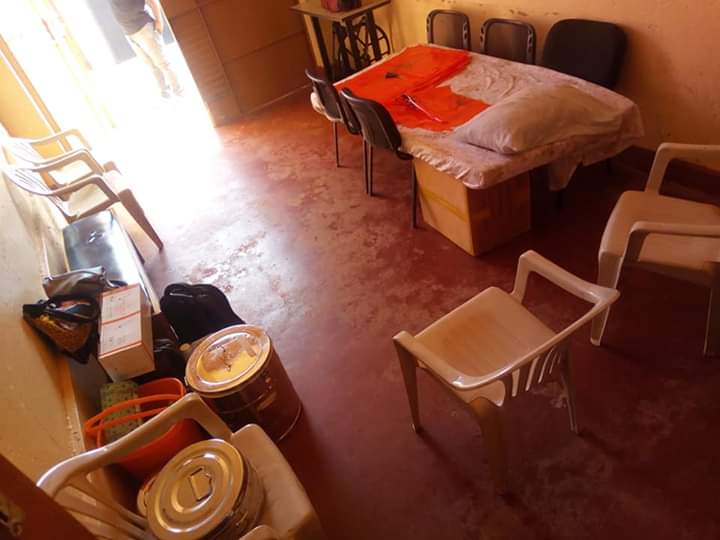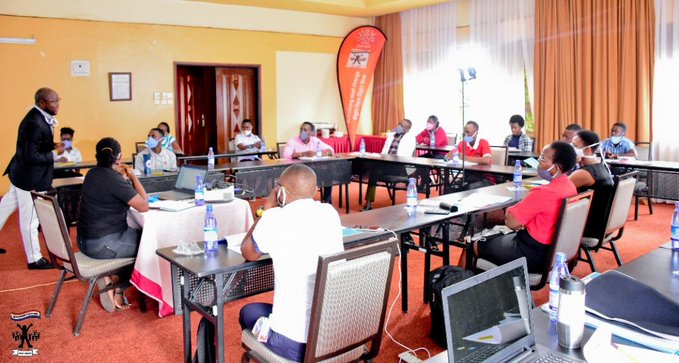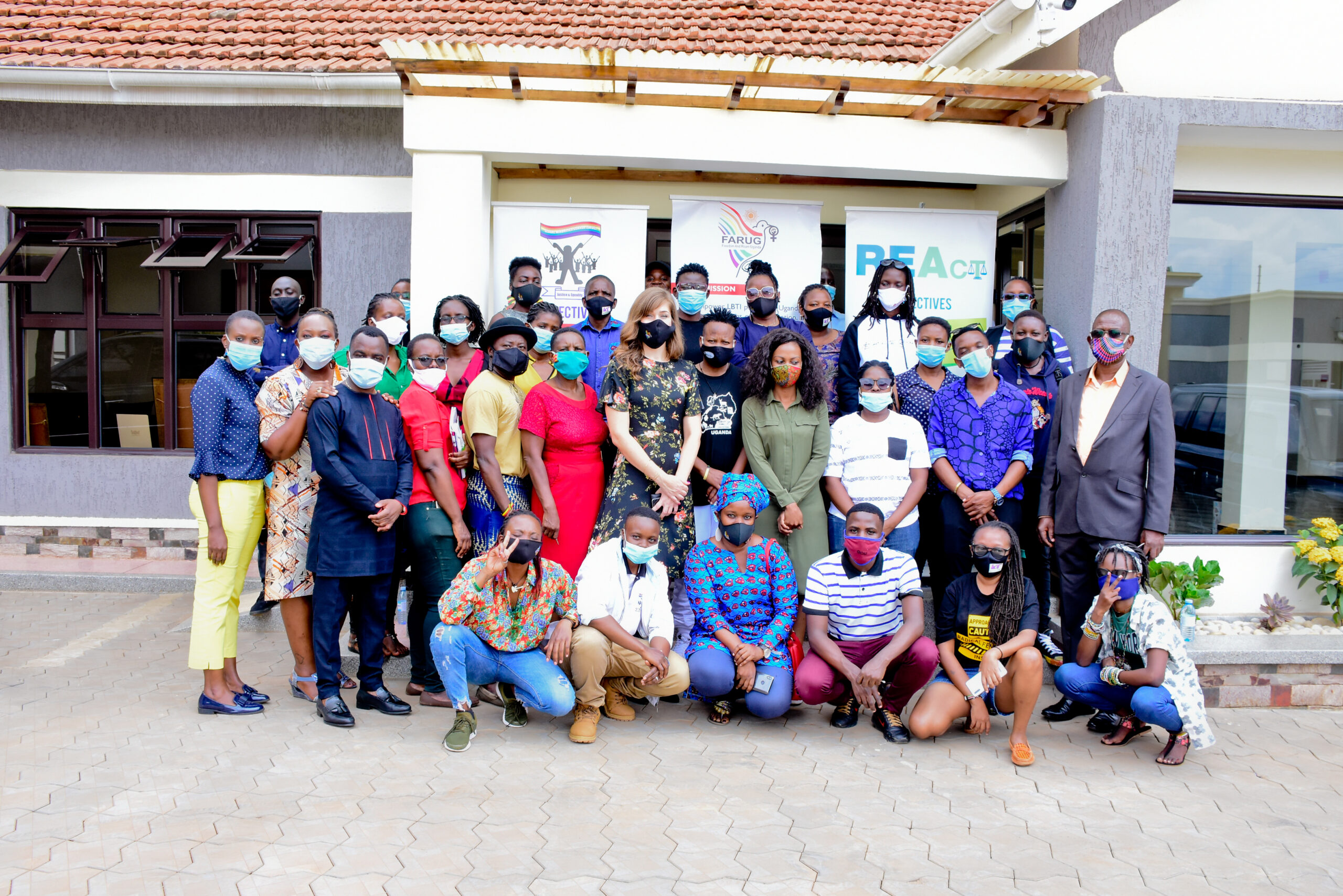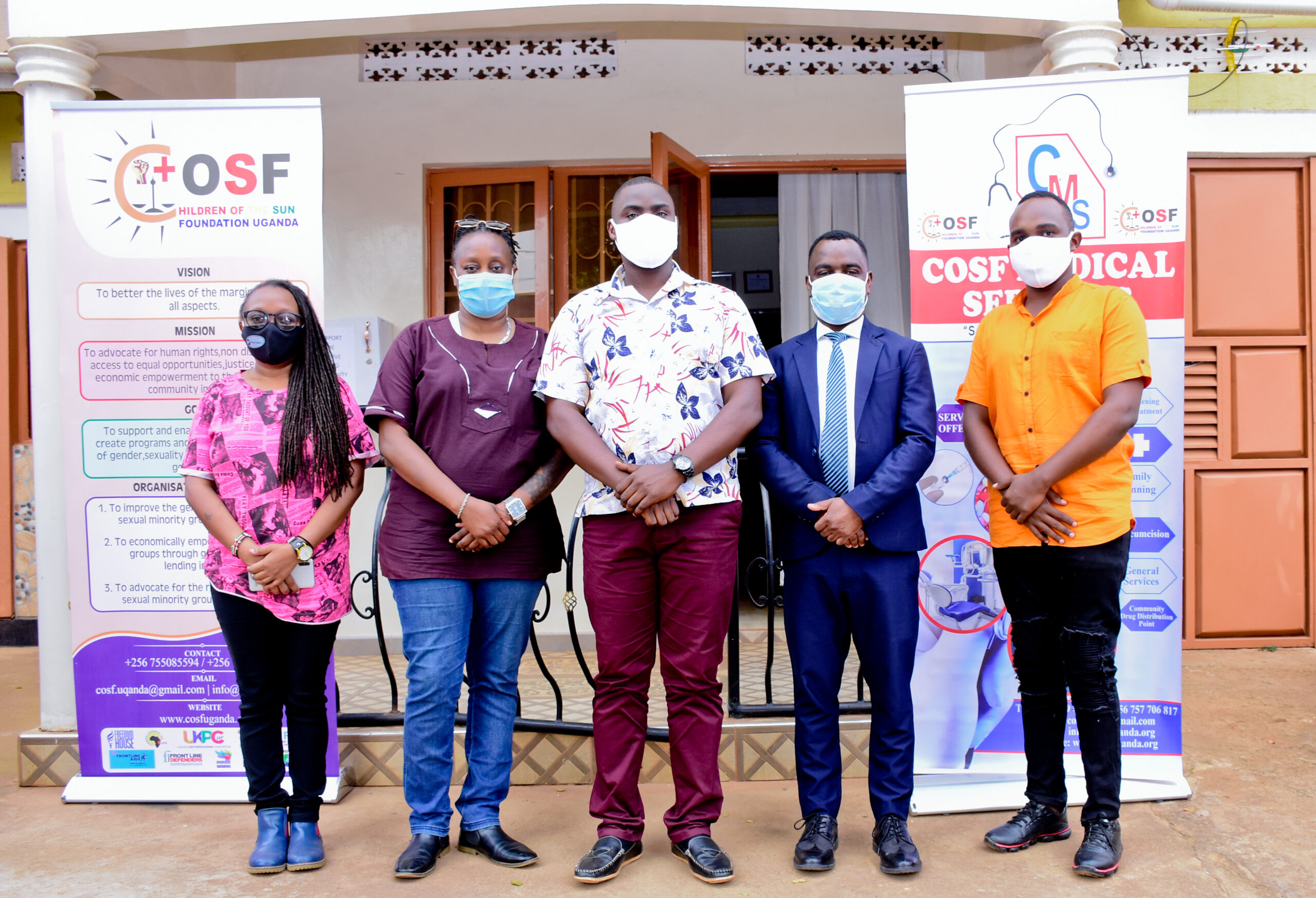Lesbian, Gay, Bisexual, Transgender, Intersex and Queer-LGBTIQ people in Uganda are at a higher risk of being diagnosed with cancer because they are more likely to engage specific behaviors that increase their likelihood developing cancer. These could be sexual practices and social behavior like alcohol and cigarette consumption. The most prominent types of cancer that affect the LGBTIQ community include cervical cancer, anal cancer, breast cancer, lung cancer among other types of cancer.
It is on this note that Sexual Minorities Uganda is at the forefront of the battle against cancer within the LGBTIQ community this year. Our first program this year was a free cervical and breast cancer testing service for lesbian, bisexual, and transmen in Kampala. During the testing, one of the doctors said cervical cancer is the cancer that affects the mouth of the uterus. People at risk of getting cervical cancer are women and transmen between 35 and 45 because their immunity is low, poor dieting, sexually transmitted infections namely HPV, multiple sex partners and smoking. She mentioned that women living with HIV also risk getting diagnosed with cervical cancer. She urged the community to engage in yearly cancer testing and quick treatment if one is diagnosed.
Pepe Julian Onziema the Programs Director Sexual Minorities Uganda said “I am proud of all the wonderful people who have showed up today for these free services, some of these are new faces of young lesbians, they give me so much positive energy and hope.”
Sexual Minorities Uganda has today joined the rest of the world to observe World Cancer day. With the theme being “I Can and I will”, let us commit to going for early testing and treatment of cancer. Sexual Minorities Uganda will be visiting other regions for free cervical and breast cancer testing, please endeavor to spare us some time and do the tests.
Quick fact: African men are more likely to develop prostate cancer than men of other races.
Some of the basic ways to reduce cancer risk include, avoiding smoking or using tobacco products and alcohol consumption, engaging in regular exercises to keep a healthy weight and having a healthy balanced diet.
PS: Please consult a professional physician for more information about cancer.




